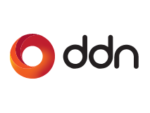“Above the Trend Line” – Your Industry Rumor Central for 9/30/2022
Above the Trend Line: your industry rumor central is a recurring feature of insideBIGDATA. In this column, we present a variety of short time-critical news items grouped by category such as M&A activity, people movements, funding news, financial results, industry …
“Above the Trend Line” – Your Industry Rumor Central for 9/30/2022 Read more »








